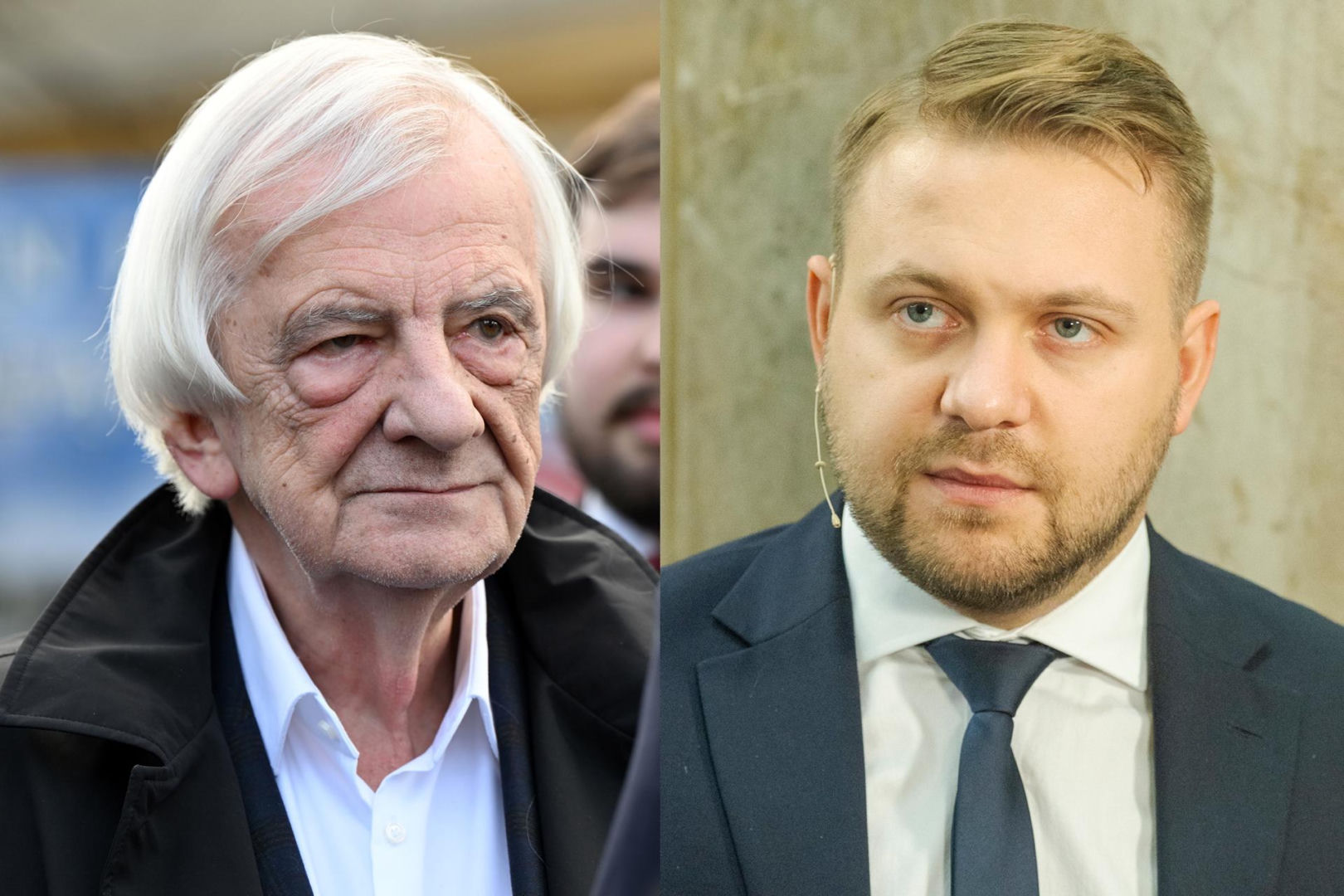Description of the facts
P. M. he was accused of having not later than 31.3.2019, in an unestablished place in Poland, taken possession of items entrusted to him at night from 10 to 11.1.2019 in the UK M. Z. the full value of at least PLN 9,000, where he committed the act within 5 years after serving at least 6 months of imprisonment for a wilful offence akin to that of Article 284 §2 of the KK in conjunction with Article 64 §1 of the KK.
District Court of R., judgement of 22.9.2022, II K 124/20, sentenced the suspect P.M. for the criminal offence against him for six months in prison, requiring him pursuant to Article 46(1) of the KC to make good the harm by paying the victim M.Z. amounts of PLN 8.725.
The defendant’s defence appealed that judgement in its entirety, alleging that the provisions of the proceedings affecting the content of the judgment, and in peculiar Article 4 of the NCP, Article 5(2) of the NCP, Article 7 of the NCP and Article 410 of the NCP, as well as Article 424(1) of the NCP, infringe the rule of objectivity and the rule of presumption of innocence by failing to resolve doubts in favour of the accused, exceed the limits of the free assessment of evidence, neglect to take into account, in the judgement of the full of the circumstances revealed during the main proceeding and take into account only the circumstances which would be contrary to the defendant’s innocence, and thus to base the content of the judgement on the selectively elected evidence, unreliable, and to deny the value of reliability, without due and convincing justification, of the defendant’s explanations, and by making incorrect factual findings, the consequence of which it was so assumed that the suspect had committed the alleged act. It is besides characteristic that the uncovering of the facts of the case was based on incomplete evidence, with the exception of the proceeding M.S., without justifying specified a position in the justification of the judgment.
In so doing, the suspect applied for the defendant’s acquittal, possibly repealing the judgement of the Court of First Instance and mention the case to that Court for review.
The territory Court of R. in judgement of 21.6.2023, III Ka 897/22, annulled the contested judgement and referred the case to the territory Court of R. for retrial.
The territory Prosecutor of the territory Prosecutor's Office in R. brought an action against the judgement of the Court of Appeal, bringing an action against the suspect in its entirety and accusing him of violating Article 437(2) of the NCP by stating that there is simply a condition in the case justifying the repeal of the judgement of the territory Court in R. of 22.9.2022, II K 124/20 and the transfer of the case to that Court for re-examination, while in the case there is no grounds for concluding that there was a request for a re-trial of the whole.
On the basis of the above, he requested that the judgement under appeal be set aside and that the case be referred to the territory Court in R. for review.
The ultimate Court, after the examination of the action brought under Article 539a(1) of the NCP by the prosecutor, annulled the judgement under appeal and referred the case to the territory Court in R. for review in appeal proceedings.
Reasons for SN
According to the ultimate Court, the anticipation of repealing the judgement and referring the case to the Court of First Instance for review in the current model of appeal proceedings in Poland has been severely limited.
Repeal of the judgement is possible in 3 situations:
- the existence of absolute grounds for appeal,
- the request for a full re-opening of the judicial line; and
- when the improvement judgement would violate the regulation ne peius, as referred to in Article 454(1) of the NCP.
The existence of any of these conditions, referred to in Article 437(2) of the NCP, means that the referral to the court for review meriti is essential for the purposes of criminal proceedings and there is no anticipation of curing errors in first instance proceedings or supplementing evidence in appeal proceedings.
The ultimate Court, having examined the judgement of the appeal court, does not measure the correctness of the appeal, but only, as is apparent from the view expressed in the resolution of 7 ultimate Court judges of 25.1.2018, I KZP 13/17, Legalis, examines whether there is simply a alleged absolute appeal ground under Article 439(1) of the NCP at the phase of the appeal procedure (if this was the reason for the annulment of the judgement and specified a plea was raised in the complaint) or whether the appeal court has waived the judgement despite the absence of the formal obstacles referred to in Article 454 of the NCP to issue the amending judgement and whether it is essential to carry out the full judicial procedure (Article 437(2)). in fine KPK). The scope of the review by the ultimate Court in this procedure is so limited to examining whether the infringement found by the appeal court gives emergence to a cassatory ruling (cf. the ultimate Court judgement of 20.10.2020, I KS 9/20, Legalis).
In the present case, it must be assessed that the Court of First Instance has infringed Article 437(2) of the NCP by repealing the judgement of the Court of First Instance and reopening the case. Pointing to the request to carry out the full judicial procedure, at the same time in the justification of the ruling, he pointed out that the evidence needed simply to be completed alternatively than completed from the beginning. Necessity to re-conduct the cable as referred to in the second conviction of Article 437(2) in fine The NCP, as the reason for the annulment of the judgement under appeal by the court of appeal and the transfer of the case to the court of first instance for re-examination, is only if the court of first instance infringes the rules of procedural law, which resulted, in the facts of the case, in the failure of the court proceedings pending, justifying the request to repeat (re-) all procedural acts consisting of a court of first instance (cf. the resolution of the ultimate Court of 22.5.2019, I KZP 3/19, Legalis). If, on the another hand, the infringement by the court of first instance of the procedural provisions does not relate to the full judicial line and does not have any effect on the full of that line, then, of course, it will only be essential to repeat the judicial line only in the part affected by the infringement, and this does not entitle the Court of Appeal to accept that it is essential for the court to carry out the first instance of the judicial line as a full (ibid).
Requiring evidence – from the evidence of M.S., wives M.Z. and, if necessary, M.B. – it could have been carried out before the Court of First Instance of the second instance, so the repeal of the judgement of the territory Court in R., in order to carry out the above evidence before the Court of First Instance, is unjustified in the light of the current provisions. It does not substance that, as stated by the Court of First Instance, "considering the scope of the individual evidence requested to be carried out in the indictment, limited to the defendant's explanations, witness evidence M.Z., M. B. A.M. together with the evidence from the papers and the request to carry out the evidence mentioned above, the state in which the evidence is made up of the full of the judicial line arises.’ The current rules supply in specified a case for additional evidence by the court adquem.
In the light of the above considerations, the plea of gross infringement of Article 437(2) of the NCP, raised in the prosecutor’s complaint, had to be considered to be justified, since there was no request for the Court of First Instance to re-run the cable in its entirety meriti. The judgement of the territory Court under appeal had so to be abrogated and referred to that Court for review in the appeal proceedings.
Recognising the case, that court will carry out evidence which it considers essential to establish all the circumstances essential to settle P.M.'s criminal liability as an offence against him.
Comment
Against the background of the case in question, there is no dispute that the request to supplement the evidence procedure, or the request to re-examine the evidence already collected, which meets the requirements of Article 7 of the NCP, does not fall within the statutory basis of the cassatory judgement under Article 437(2), second conviction in fine The NCP, regardless of the rank of the evidence and their relevance to the result of the proceedings (judgment of the ultimate Court of 9.8.2023, V KS 20/23).















